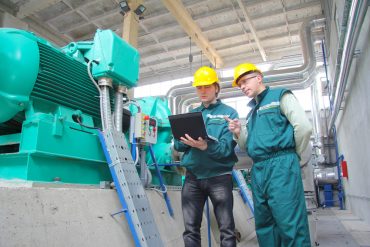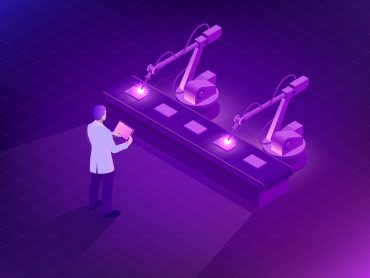
Exploring the connections between human intelligence and quantum computing may unlock new possibilities for artificial intelligence that could fundamentally change our relationship with the technology.
The human brain has long been considered one of the most complex and mysterious phenomena in the natural world. With its intricate network of neurons, synapses, and glial cells, the brain has proven to be an incredibly challenging puzzle for researchers and scientists to decipher. Meanwhile, quantum computing is an emerging technology that harnesses the unique properties of quantum mechanics to perform calculations and solve problems at speeds far beyond the capabilities of traditional computers. As researchers continue to delve into the inner workings of both the brain and quantum computers, they have started to uncover striking similarities between these two seemingly disparate systems.
Quantum computing and the human brain: similarities and potential connections
One key similarity between the human brain and quantum computers is their inherent ability to process vast amounts of information in parallel. In the brain, this parallel processing capability is achieved through the simultaneous firing of billions of neurons, allowing humans to think, learn, and make decisions at an astonishing rate. Similarly, quantum computers rely on the unique properties of quantum bits, or qubits, which can exist in multiple states at once, enabling them to perform multiple calculations simultaneously. This parallel processing power has led some researchers to suggest that the human brain may function, at least in part, through quantum processes.
Moreover, the concept of quantum entanglement, where the state of one particle is inextricably linked to the state of another, regardless of the distance between them, has drawn parallels to the way neural networks in the brain are interconnected. This intricate web of connections allows for the rapid exchange of information, which is essential for cognitive processes such as memory formation and decision-making. Some scientists believe that quantum entanglement may play a role in these complex brain functions, providing a deeper understanding of the link between quantum mechanics and human intelligence.
See also: Quantum Computing Acceleration of AI in Pharma on the Rise
Quantum computing as a key to unlocking true artificial intelligence
As researchers continue to explore the connections between the human brain and quantum computing, they are also uncovering the potential for quantum computers to revolutionize the field of artificial intelligence (AI). Classical AI systems, while powerful, still struggle to replicate the cognitive capabilities of the human brain. Quantum computing, with its ability to process information at unparalleled speeds and perform complex calculations, could hold the key to unlocking true artificial intelligence – machines that can think, learn, and reason like humans.
By harnessing the power of quantum computing, AI researchers could potentially develop algorithms and models that are more efficient, accurate, and powerful than their classical counterparts. This could lead to breakthroughs in areas such as natural language processing, pattern recognition, and decision-making, allowing AI systems to more closely resemble human intelligence. Furthermore, quantum AI could enable the development of more advanced neural networks, which could more accurately model the structure and function of the human brain, providing valuable insights into the nature of human cognition.
See also: Quantum Natural Language Processing Deployed on BBC Archives
The future of quantum AI: ethical considerations and potential societal implications
As we move closer to developing human-like AI using quantum computing, it is crucial to consider the ethical implications of this groundbreaking technology. Creating machines with human-like intelligence raises a myriad of ethical questions and potential consequences for society, the workforce, and individual privacy.
One of the most pressing ethical concerns is the potential displacement of human workers by advanced AI systems. As quantum-powered AI becomes more capable, it may lead to significant job displacement in various industries, requiring a reevaluation of the role of humans in the workforce and the need for education and retraining programs. Additionally, as AI systems become more human-like, it may become increasingly difficult to distinguish between human and machine-generated content, raising concerns about the potential for AI-generated misinformation and its impact on society.
The development of human-like AI also raises questions about AI rights and whether machines with human-like intelligence should be granted certain legal protections or responsibilities. As AI systems become more advanced, it may be necessary to establish guidelines for the ethical treatment of AI and to consider whether machines with human-like intelligence should be granted a legal status similar to that of humans or even animals.
Governments, organizations, and individuals all play a crucial role in shaping the ethical guidelines and regulations for the development and deployment of quantum-powered AI systems. By engaging in thoughtful and informed discussions about the ethical implications of human-like AI, we can work together to ensure that the development of this technology is guided by a strong moral compass and a commitment to creating a future that benefits all of humanity.
See also: Quantum Computing: Coming to an FSI Company Near You
Challenges and possibilities in achieving human-like intelligence
Despite the potential of quantum computing to unlock true artificial intelligence, there are still numerous challenges that must be overcome before we can fully realize this vision. One such challenge is the development of quantum hardware that is both powerful and stable enough to support the complex calculations required for advanced AI applications. Additionally, researchers must develop algorithms and models that can effectively harness the power of quantum computing to replicate human cognitive processes.
Even with these challenges, the possibilities for achieving human-like intelligence through quantum computing are vast. By continuing to explore the connections between the human brain and quantum mechanics, researchers may uncover new insights into the nature of human intelligence, potentially unlocking new methods for replicating this intelligence in machines. This could lead to AI systems that can not only think and reason like humans but also exhibit creativity, empathy, and intuition – qualities that have thus far remained elusive in artificial intelligence.
The journey towards understanding and utilizing the quantum brain is still in its early stages, but the potential benefits of this research are immense. As we continue to explore the connections between human intelligence and quantum computing, we may unlock new possibilities for artificial intelligence that could fundamentally change our relationship with technology.



























